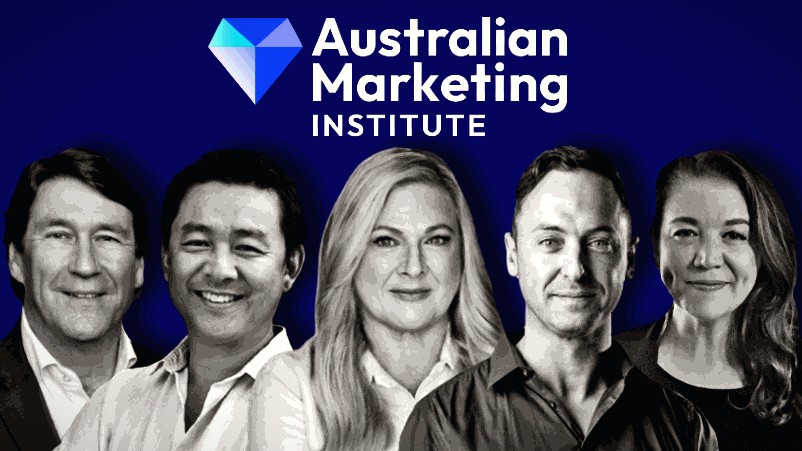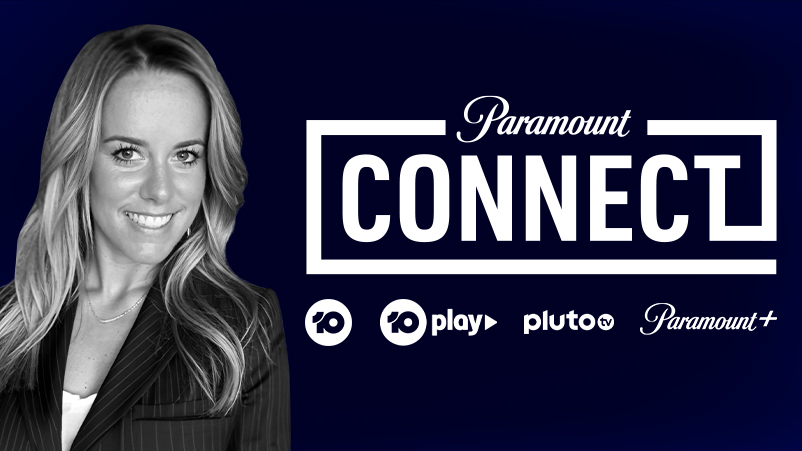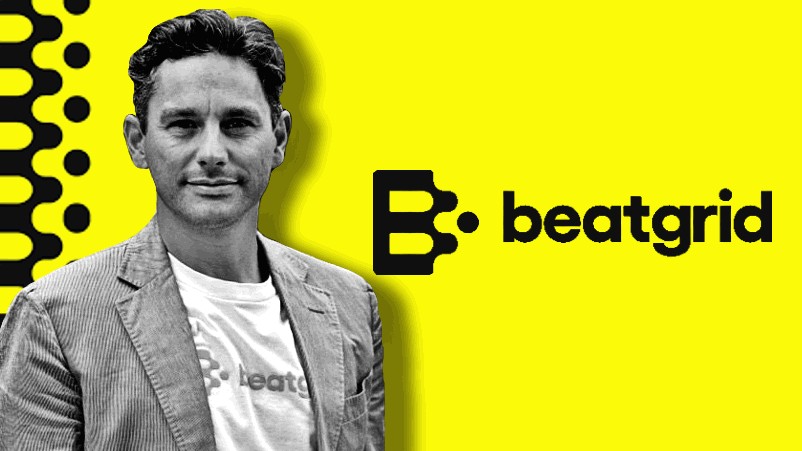Chartered Accountants, AFL, Menulog, recruiters back Australian Marketing Institute’s push for all marketing industry execs to pursue Certified Practising Marketer status; Mi3 alliance announced, professional development points earned for reading content

Development beyond marketing (l to r): AMI Chair Andrew Thornton, Menulog CMO Simon Cheng, AMI CEO Bronwyn Heys, AFL Marketing Senior Manager Anthony Voyage, Chartered Accounts Australia and New Zealand CMO, Chelsea Wymer.
This article is about getting marketers, agencies, media and tech talent to become more like chartered accountants – in a good way. That is, have letters after their name that mark them out to employers, peers and recruiters as the most horizontally skilled and relevant in the business – and be required to continue learning every year to keep them. It's why marketing leaders at the AFL, Menulog and Chartered Accounts Australia and New Zealand are backing the AMI's competencies framework, embedding it to future-proof their teams and drive marketing upstream – and pushing for industry-wide CPM status. And it's why Mi3 and the Australian Marketing Institute (AMI) have partnered as part of the industry body's ambition to elevate the profession's standing. From today, AMI members can log-in and read Mi3’s articles and earn continuous professional development (CPD) points that count towards retaining the AMI’s Certified Practising Marketer (CPM) status. CPMs need 100 points every year to keep their status. So keep reading – as getting to the end of this article earns a point while unpacking
What you need to know:
- Menulog CMO Simon Cheng is using the AMI framework of 25 competencies to create “horizontal” marketers. Go broad not narrow is his advice to marketers – and amass financial acumen much earlier in your career. Then buy the CFO lunch, regularly, via app-based delivery or otherwise.
- For Anthony Voyage, Senior Manager of the AFL marketing team, harnessing the framework is all about “marketing fitness” and gaining incremental advantage through it.
- Chelsea Wymer knows exactly the value of chartered status – because she’s CMO at Chartered Accounts Australia and New Zealand, which accredits 136,000 chartered accountants. Her advice? “Take control of your own learning”. Wymer’s entire team has joined the AMI and is now mapping out both short and long-term career paths against its competency framework – and those paths are not necessarily linear.
- AMI CEO Bronwyn Heys says businesses need “bench-ready talent” if they are to promote from within – which requires more horizontal and “more adaptable” talent given accelerating flux. Hence developing the AMI’s 25 competencies with counterparts in the UK, Europe and the US. But she says there is one constant: “If you do not have commercial acumen as a marketer, you are going to fail.”
- AMI Board Chair Andrew Thornton says recruiters are increasingly exasperated at the lack of “broader, non-marketing expertise” in those applying for CMO roles. “It is really hindering where they are going,” he suggests.
- If recruiters are telling you what’s closing off your job options… it’s probably worth listening. Get the full download via the podcast.
I've got two pieces of advice for all marketers out there: Don't be afraid to swim in other swim lanes and learn more about everyone else’s stuff. The other big one is become best mates with the CFO.
CPM: Marketing’s professional badge
“We still live in a world where pretty much anybody can hang out a shingle and call themselves a marketer,” says Australian Marketing Institute (AMI) Board Chair Andrew Thornton.
That’s the problem.
“More and more, I get feedback from members saying, ‘this is not good for our industry, because they don't really know what they're doing’.”
Given exploding marketing remits, the need to know what you’re doing across an increasingly fluid landscape is fundamental to marketing’s future – and that of its practitioners.
Which is why the likes of Menulog CMO Simon Cheng, AFL lead marketer Anthony Voyage and Chartered Accounts Australia and New Zealand CMO, Chelsea Wymer, are 100 per cent behind the AMI’s mission to put marketers on the same footing as chartered accountants – both in terms of competency and professional standing.
That’s what Certified Practising Marketer (CPM) status is all about – delivering a recognised professional qualification that puts marketing on a par with certified industry equivalents and underlines that CPMs are proficient across the increasingly broad range of disciplines required to drive growth.
“When I first started, the remit of the CMO was all about just being the creative guy,” says Menulog's Cheng. “Now we're expected to be the analytics guy, the customer guy, the technical guy, as well as the creative guy – and we've had to adapt our skill sets.”
While industry has adapted, he thinks marketers are still light on commercial and financial acumen. Collectively bridging that gap, he says, “is how we're going to see more CMOs in board and CEO roles”.
That’s where Cheng is focusing his team’s learning – and his own. While honing craft remains critical, he says business acumen must likewise be drilled into marketers much earlier.
“Understanding the drivers of business, how to read a P&L, understanding trading, what drives profitability in a business – all that stuff is really important and they're the kind of skills we should be developing in the younger members of our team,” says Cheng.
Talking about brand awareness and narrow marketing metrics, he says, isn’t going to cut it. Hence Cheng, an AMI board member, is deploying the Institute’s competency framework to more broadly skill Menulog’s team and future-proof Menulog's marketing function and its people.
“I've got a real focus on trying to get horizontal growth and promote that within the team, I think the younger generation in general, is quite focused on vertical promotion ... But the competency framework helps us provide everyone with more perspective around the broader capabilities that are required as a marketer,” says Cheng.
“As you progress further in your career, you've got to be able to speak the language of business,” says Cheng.
“It's not just about impressing your marketing colleagues anymore, it's about impressing the wider business community, your C-suite. Gaining respect and credibility amongst that group ultimately makes it easy for the marketing team to achieve what they do. So personally, I'm constantly looking at how I develop financial acumen, learning how to read balance sheets, listening to investor calls, spending a lot of time with the CFO talking about more than just marketing,” he adds.
In short, go broader to go further.
“I've got two pieces of advice for all marketers out there,” says Cheng. “Don't be afraid to swim in other swim lanes and learn more about everyone else’s stuff. The other big one is become best mates with the CFO.”
It's about how do I personally – and with my team – help with the building of strategies and the improvement of that as a learning function … So [that marketing] is not just an executional arm, that it’s the forefront of strategy and they are building those connections through the business.
Maintaining marketing fitness
AFL marketing lead Anthony Voyage uses the AMI competency framework as a pulse check for “marketing fitness”, in a bid to gain the marginal capability edges that make the difference.
“I use it for performance feedback loops at the end of the year [where] we have conversations about career progression not necessarily having to be vertical, it can be horizontal… So I check in on the [AMI] competency framework to have those conversations with team members about gaps in developmental areas.”
But he says staff must equally take responsibility for their own professional development. “70 per cent of your learning is done on the tools – you've got to be proactive in your own learning. I say ‘this is the 20 per cent and 10 per cent where it's more of a structured program, but you've got to be proactive in driving it, and it's not for everyone... But those that do drive it themselves … get the benefits from it’.”
Ensuring that “marketers have a really strong strategy, learning model and baseline” is one of the key skills gaps Voyage perceives.
“From my own experiences coming out of consumer goods, [the strategy] might be a lift and launch that comes from a global team, or it might be an agency team that's actually helped to build and drive a strategy. How do you actually build and drive a strategy yourself from scratch? I'm seeing that we sometimes have gaps in that area,” says Voyage.
“So for me it's about how do I personally – and with my team – help with the building of strategies and the improvement of that as a learning function … So [that marketing] is not just an executional arm, that it’s at the forefront of strategy and they are building those connections through the business.”
CPD is about helping you meet the challenges you face at work, advancing your career and recognising any blind spots that you have. It's really easy to put off CPD, particularly when you're busy. But it's not just about ticking those boxes, and doing the hours. It's about leveraging that to achieve your career ambitions.
Marketing meets chartered accountants
Chelsea Wymer knows exactly the value of chartered status and continuous professional development (CPD): She’s CMO at Chartered Accounts Australia and New Zealand, which accredits 136,000 chartered accountants – and requires them to do 120 hours of CPD every three years to retain chartered status.
Wymer, a former head of marketing at Fairfax pre-Nine merger, is embedding the AMI’s capability framework within her marketing function, firstly mapping the AMI’s 25 competencies against her team – and then using it to plan both their skills and career trajectory across the short and long-term.
The response to the AMI program was “an overwhelming yes from everybody in the team – even those who thought they might be too data-analytics focused for this to be relevant”, says Wymer.
“Once they've seen the competency model, it's been a very different conversation, because it does bring in those business and people competencies that everybody needs within their role, not just the marketing competencies.”
Now all of her team are AMI members – and Wymer seconds AFL’s Voyage on the need for marketers to be proactive in plotting their own paths – and continuously improving both their knowledge and their prospects.
“It's really important that everyone takes control of their own learning and career," she says. "If you sit back and wait for someone else to do it for you, it's never going to happen.
“CPD is about helping you meet the challenges you face at work, advancing your career and recognising any blind spots that you have. It's really easy to put off CPD, particularly when you're busy. But it's not just about ticking those boxes, and doing the hours. It's about leveraging that to achieve your career ambitions,” adds Wymer.
"So look at it as beyond [earning] CPD points and think about it as achieving your career ambitions.”
Her advice to marketers?
“Become a member of the AMI and complete your CPD. It really does tell the organisations we work for that we're more than just ‘the colouring in department’; that we're experts with serious tech and digital skills – and commercial acumen.”
Simply by signing up as an Mi3 member, updating your account and putting in your AMI CPM number, you can start earning points and they'll be tallied towards your CPD [requirement]. It's a brilliant and easy way to get your CPD points just by reading, remaining relevant and getting knowledge about what your peers are up to in the marketing industry.
Mi3 = CPD
Launched late last year, AMI’s competency framework outlines 25 competencies to drive marketing proficiency in five critical areas: Insights, customer experience, strategy, brand and digital. These straddle sectors including B2C, B2B, FMCG, professional services, government and SMEs.
It was developed in conjunction with 50 CMOs and in collaboration with the Irish Marketing Association, UK Chartered Institute of Marketing, and the European Marketing Association. AMI CEO Bronwyn Heys (nee Powell) says the framework is also in line with US market requirements, and so is globally applicable.
The aim of the AMI’s full funnel capability push is to build best in class marketers – that are universally recognised as such – via its Certified Practising Marketer (CPM) accreditation. Ultimately, that means marketers with 10 years practising experience who become AMI members can be accredited as a CPM, the equivalent of Chartered Accountant status.
But in order to retain that status, CPMs will need to achieve 100 CPD points every year.
Which is why Mi3 has partnered with the AMI. As of this week, reading Mi3 articles will enable AMI members to accrue CPD points.
“We're really excited to be partnering with Mi3,” says Powell. “A lot of our members want to understand examples in marketing from their peers; they want to see how people have applied their knowledge in real life and what they've learned. And a lot of Mi3’s articles really go deep in terms of that knowledge.”
Longer-form Mi3 deep dives – like this one – will count as a full CPD point, while other select articles will count as half a point, with points indicated by a yellow icon in the top right corner.
“So you can maintain your relevancy by just reading articles,” says Heys. “Simply by signing up as an Mi3 member, updating your account and putting in your AMI CPM number, you can start earning points – and they'll be tallied towards your CPD [requirement]. It's a brilliant and easy way to get your CPD points just by reading, remaining relevant and getting knowledge about what your peers are up to in the marketing industry.”
Heys, a former marketing chief at the likes of KFC, Mars, Coca-Cola Amatil, 20th Century Fox and George Weston Foods, urges marketers to make stay curious.
“A mantra of lifelong learning will get you a long way. If you want to be a CMO in the future, you need to embrace learning, you can't stand still … You need to remain relevant.”
AMI Chair Andrew Thornton seconds that call: “You've got to own your career development.”
AMI members can own their CPD points accrual by updating their Mi3 member profile.
Get the full download via the podcast.


